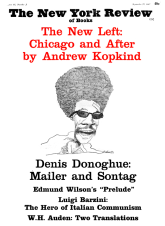To the Editors:
Your readers might be interested in the following correspondence:
August 8, 1967
Dear Robert Kennedy,
Yesterday, stopping at customs at Derby Line, Vt., I declared that I had a book purchased by my son at the Cuban pavilion at Expo in Montreal. The book was at once confiscated by the customs officer (Badge 5319) and I was asked to sign a statement “abandoning” it and “assenting to its destruction.” By burning, according to the officer. Naturally, as an intellectual man and a writer I could not assent to the burning of a book and I refused to sign until the superior officer at the station scratched out the word “assent.” But he then declined to give me the usual carbon-copy receipt which, instead, he crumpled and threw on the floor.
When I told him that my son had bought the book, Nuevos Cuentos Cubanos (Ediciones Union/Cuento, Habana 1964), in connection with a course at Cornell and that therefore there was also an infringement of academic freedom, he offered that he might have that course investigated. I have, the names and addresses of several witnesses to this behavior.
In my opinion, the petty harassment of commerce with Cuba is unmagnanimous and impolitic, but I am not now complaining about it. A book, however, is only incidentally an article of trade. Banning and burning communications is obviously unacceptable, and it is, of course, disastrous to a democracy to keep citizens from acquiring information. Please do something about the situation.
A few years ago, when there was a similar harassment of mail from Cuba, I complained to Congressman Lindsay and he worked to have the regulation abolished. I trust you can be equally effective. Also, please advise me how to recover the price of the book or a replacement.
Paul Goodman
402 West 20 Street
New York City
This Issue
September 28, 1967



